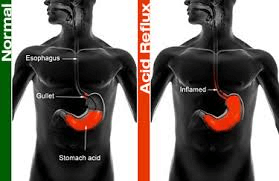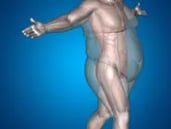Gastroesophageal Reflux Disease (GERD) is a life-affecting condition that affects as many as 20% of the population. Given the prevalence of GERD, the quest for suitable treatment methods has been a relentless one— but often to little effect.

Until recently, GERD was typically treated with a class of medications known as proton pump inhibitors (PPIs). These medications sought to quell the symptoms of GERD by reducing the amount of acid in the stomach.
On first inspection, PPIs are extremely effective at reducing the symptoms of GERD. The most common symptoms of the condition include, among others:
- Heartburn
- Difficulty swallowing
- Regurgitation
- A physical sensation of there being a ‘lump’ in the throat (even though no physical lump is present)
PPIs have shown an ability to help control these symptoms and. Along with diet changes, they have been the established method of managing GERD for many years.
The problem with PPIs
Unfortunately, evidence is mounting to suggest that PPIs may be problematic.
![woman-eating-pill[1]](https://www.starpoli.com/hs-fs/hubfs/file-650880798%20(1).webp?width=443&height=267&name=file-650880798%20(1).webp)
While effective and generally safe in the short-term, PPIs have been linked with a variety of health concerns. This has caused a great deal of alarm in the medical community. Since 2010, scientific literature suggests a link to a number of different health problems, including:
- A higher risk of bone fractures
- Vitamin B12 deficiency
- Cutaneous and systemic lupus erythematosus
- Dementia
- Risk of stroke
- Reduced kidney function
These effects are particularly concerning during long-term usage of PPIs. However, for sufferers of GERD, their only option for controlling their life-damaging condition was to continue to take them or undergo invasive surgical procedures. Thankfully, there is now another option available for GERD sufferers to consider.
Introducing the Esophyx TIF Procedure
The full name of this procedure is the Esophyx transoral fundoplication procedure. Fortunately, though, it is more commonly abbreviated to TIF. This treatment provides an incision-free method of remodeling the anti-reflux barrier valve. In this way, it has shown great promise in improving outcomes for those with GERD.
The surgery involves the reconstruction of the anti-reflux barrier and gastroesophageal flap valve. These areas have a key role to play in ensuring stomach acid remains in the stomach. They can prevent it traveling into the esophagus, as happens with GERD. The TIF procedure is performed through the mouth, eliminating the need for invasive surgery. It uses endoscopic visualization to deliver optimal results.
The impact on patients and outcomes from TIF is notable. The recovery time from the surgery is short, and usually takes just a few days. Outcomes are generally excellent. Most notably, studies have found that 85% of patients no longer need to take PPIs or other antacid medication after the surgery. This is a much appreciated result given the potential implications of these medications. Furthermore, 75% of patients reported a complete elimination of heartburn symptoms within a year of the surgery. That suggests that the TIF procedure offers a genuine long-term benefit to the lives of GERD sufferers.
The TIF procedure can, therefore, be seen as a viable alternative to daily medication and more invasive surgical procedures for patients with GERD.
Additional sources

- https://www.healthline.com/health/gerd/facts-statistics-infographic
- https://www.mayoclinic.org/diseases-conditions/gerd/symptoms-causes/syc-20361940
- https://www.healthline.com/health/gerd/diet-nutrition
- https://chriskresser.com/the-dangers-of-proton-pump-inhibitors/
- https://www.healthline.com/health/hypomagnesemia
Obesity Reflux fundoplication atypical reflux heartburn EsophyX incisionless surgery GERD Awareness Week



